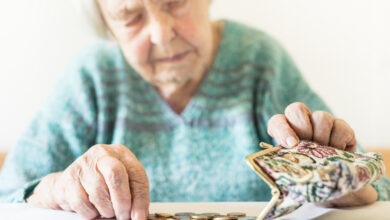NURSING HOMES: Memories I’d Like to Forget!

When I first started practice, I was the “new kid in town.” I was the new doctor who everyone called because they thought I wasn’t busy and needed patients. Never mind the fact that two local GP’s had retired just before I started, and I inherited a lot of their old patients. I was plenty busy. People heard I was taking new patients and took full advantage of my availability.
That carried over to nursing homes. Since I allegedly wasn’t busy, I was asked by several nursing homes to take over supervising the care of a large number of Medicaid patients. At one nursing home, alone, that amounted to thirty (30) patients. Thirty patients, all of whom had complicated situations, were bedfast, paralyzed, mute, and mentally disabled. It was a lot to absorb. I agreed to take a few patients at each of at least six other facilities as well.
During medical school, internship, and residency I was not exposed to nursing homes or nursing home patients. Patients in nursing homes are ill and live there for a reason—they’ve had strokes, they have chronic diseases, they have deformities and are bedfast, they are mentally incapacitated, or they’re comatose. Many are there just to be kept comfortable in their remaining days. Most of the patients I took had been institutionalized for many years and just needed someone to be responsible for their paperwork.
I really didn’t know what I was getting in to. Rounds (visits) on the patient’s were required every thirty days and sometimes more often. I needed to review the extensive medical histories of all of these folks which took awhile. I examined each one to get a baseline of their status; and the paperwork was monumental. I quickly found myself using my afternoon off, Saturdays, and evening hours to see these folks and keep State health inspectors out of the nursing home administration’s hair.
Back in 1974, nursing homes had a reputation. I was aware of that reputation, but until I was in one on “official business” I had no clue. On my first nursing home visit I was overwhelmed by the odor of urine. That memory has never left my consciousness. I saw very few nurses, and the employees I did find were not RN’s, but nurse’s aides. Patients were found in bed, in chairs, wandering the halls in a daze, yelling, moaning, crying, talking loud, babbling nonsensical words, or swearing. I couldn’t believe it. I can still remember that urine odor.
Well, I did what I had to do. I visited patient’s regularly as required. I treated acute, new problems, and responded to all calls from the nursing staff. An office practice receives a lot of calls just from regular, “healthy” patients, but when you add dozens of unstable, chronically ill nursing home patients to the mix, the volume of calls doubles or triples. One perplexing situation was the acuity with which nursing home patients became ill. I could see them one day when they seemed fine, and the next they had a fever, a urinary tract infection, and were taken to the ER. Or they fell out of bed, or in the hall, and broke a hip; seemingly well one day, and hospitalized one or two days later.
Eventually, (it actually took me 30 years to figure it out) I gave up nursing home practice. For many years I limited my involvement to just my office patients who were admitted after being hospitalized or whose health had declined to the point of needing a nursing home. Over the years I took care of patients in at least fourteen different facilities. These folks were all long-term patients with whom I had developed a close relationship. I hated to turn them over to a new doctor unknown to them. And it’s difficult to watch as time and disease destroy these folks’ minds and bodies. The results are disturbing.
Once I agreed to take them as patients, I felt a moral and ethical responsibility to do the best job I could. I have no negative feelings about the nursing home patients I took care of. Too many of them were unaware of their surroundings and and could not communicate. I didn’t do nursing home care “for the money” because what I was paid for nursing home visits was abysmal. I did it because it was the right thing to do at that time. It got to the point, though, where I made nursing home rounds before or after office hours, on weekends, or my day off. It took me away from family activities on many occasions, but I still felt an obligation to the patients and their families. The economics and practicality of continuing to do it didn’t make sense.
As I told many inquiring families, no nursing home is perfect. It’s a shame so many people need that type of care, because many nursing homes fail to provide the level of attention family members expect. If they were able, families would provide that care themselves. But they can’t. Nursing homes are a necessity that came about because preventive medicine and quality care have caused patients to live longer. In some ways that’s a good thing, but when Grandma can’t feed herself, control her bodily functions, or communicate, the good is hard to see.




I just read the nursing home posting. I have visited relatives in facilities. I wish there were other alternatives.
I agree. The thought of being in one myself is depressing.
The problem is that may happen sooner than I would like.